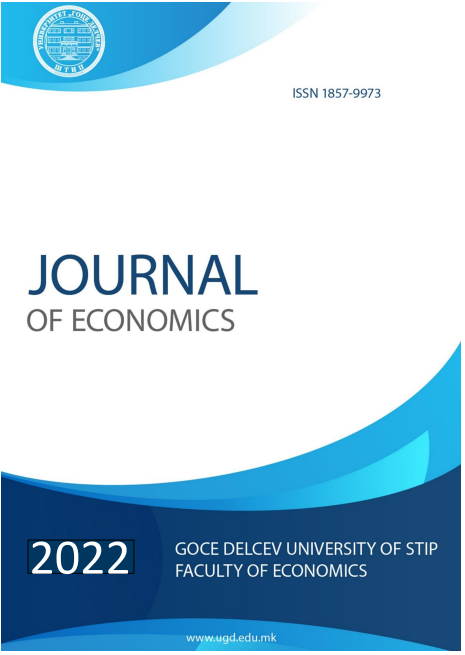High Inflation, Higher Taxes and Negative Interest Rates: Are These the Villains of the Macedonian Capital Stock
DOI:
https://doi.org/10.46763/JOE227.201gKeywords:
Investment, Capital Stock, Regression, Tax Reform, Taxes, North Macedonia, Real Interest Rate, Inflation, Crises, Marginal Productivity of Capital, Theory etc.Abstract
Our intention in this article is to examine the possible consequences on the Macedonian capital stock generated by the ongoing economic crises, originated from the Russian – Ukraine conflict, as well as to evaluate the eventual effects on capital accumulations from the upcoming tax reform starting from January 2023. In order to deflect invading Russia, western countries nave implemented numerous sanctions, but so far they haven’t achieved their primary goal. Instead, a surge of inflation has occurred, especially on food, energy and oil, indicating on the economic fragility and energy dependency of the European countries. And this trend wasn’t exceptional for North Macedonia, on the contrary, the inflation rates are record breaking ever since 1994. Meanwhile, the monetary policy was “sluggish” and unable to offer an adequate response to the accelerated spiral of inflation. The Central bank raised the basic interest rate, but not enough to incorporate the inflation premium. As a result, the real interest rate has fallen deeply into the negative zone, which could, as we can see from the research bellow, possibly decrease the marginal productivity of capital and therefore the capital stock. On the other hand, the intended tax reform is also expected to interfere the cycle of capital accumulations, but in much smaller effect. All these determinants are examined with application of the model of domestic capital formation, developed on the foundations of Neoclassical Theory of Investment, the concept of Marginal Productivity of Capital and the principles of Marginal Effective Tax Rates. The results will reveal that there is a real possibility for sharp contraction of investment and for the first time in the last 3 decades, disruption of the perpetual cycle of capital stock in domestic economy.


